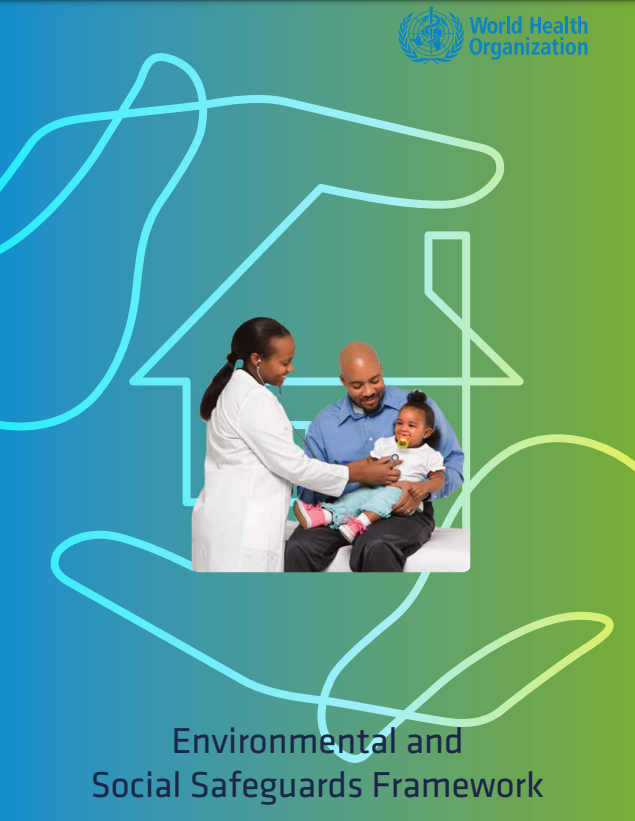World Health Organization (WHO), 2024

The World Health Organization (WHO) Environmental and Social Safeguard Framework (ESSF) is intended to promote universal access to health care, a better quality of care, social fairness and equality while also enhancing resilience to social and environmental shocks and achieving the Sustainable Development Goals (SDGs). It also is intended to avoid, mitigate and minimize any adverse environmental and social impacts from WHO activities.
The ESSF establishes a set of core principles and safeguard standards prioritizing universal health coverage, social equity, environmental responsibility, and gender equality. It outlines a clear process for identifying, managing, and mitigating potential environmental, climate and social risks associated with WHO activities. This ensures that WHO’s work not only enhances health outcomes but also strengthens communities’ resilience to environmental and social challenges, all while contributing to achieving the SDGs and addressing the existential threat of climate change.
The ESSF supports WHO’s environmental and social performance through a risk-based approach to integrate the safeguard standards into the definition, preparation and implementation of WHO programmes. ESSF provides guidance for WHO and its partners to mainstream environmental and social considerations across various aspects of health governance, from policy formulation to program implementation. The framework strengthens the sustainability and accountability of WHO’s operations and contributes to the Organization’s credibility.



